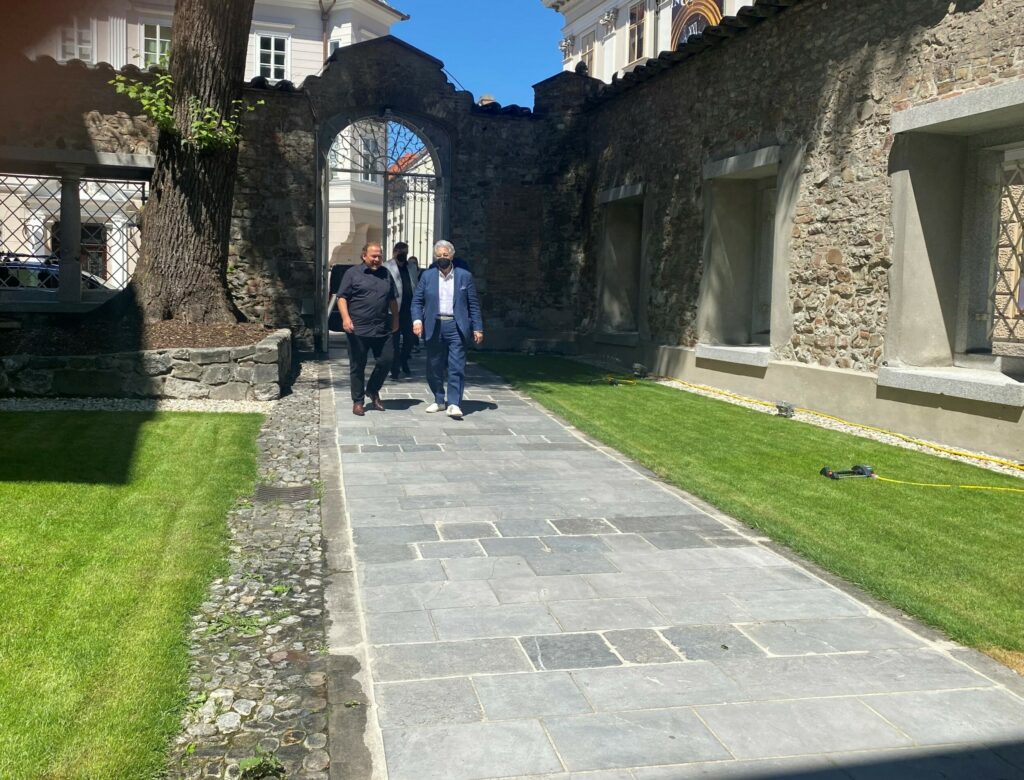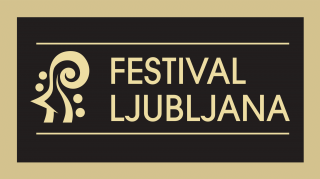Don’t miss Thursday night, when the legendary opera singer Plácido Domingo, accompanied by sopranos Saioa Hernández and Sabina Cvilak, will take us through an evening of opera arias and zarzuelas. Below you can read the interview maestro gave for the Ljubljana Festival and take a look at a few moments from today’s meeting with RTV Slovenia.
1. Your musical career began while you were growing up in Mexico. How did this period influence you as a singer and artist?
There is no question that my years in Mexico had a major influence on my professional growth. I was born in Madrid and at the age of eight went out to Mexico to join my parents, who had moved there and started their own zarzuela company. So I literally grew up in the theatre and I have wonderful memories of my childhood. When studying at the Conservatorio Nacional de Música in Mexico City, I enjoyed unique opportunities for a young musician, because there were extraordinary artists, true legends still performing when I started, and I even had the chance to sing with some of them . . . Lily Pons, Giuseppe Di Stefano, Renata Tebaldi, Cesare Valletti, Cesare Siepi, Virginia Zeani, Hans Hotter, Fernando Corena, Jon Vickers, Régine Crespin . . . Not to mention the conductors: I saw concerts by Celibidache and, in the case of Maazel, I even sang in the Conservatorio choir when he conducted the Berlioz Requiem. I also had the chance to observe masterclasses by Igor Markevitch, Carlos Chávez, Blas Galindo and Pablo Moncayo. They were precious years. I remember, for example, hearing Di Stefano in Cavalleria rusticana and Marta (my wife) in Gianni Schicchi with Corena in the same evening. I sang The Incredible in Andrea Chénier with Di Stefano, and also Le Remendado in Carmen, and Marta sang in The Marriage of Figaro with Siepi. And then I was Gastone in La traviata with Giuseppe Campora . . . so there is certainly no shortage of wonderful memories and the influence of those years was extremely formative for my future career!
2. You have sung more than 150 different roles over the course of your career. How do you prepare for an individual role?
The enthusiasm of discovering new roles to interpret is definitely something that makes this difficult job easier. I consider myself fortunate to have the possibility of studying new roles on my own, accompanying myself on the piano and in this way saving my voice. This has certainly helped with the process of memorisation. The most important thing of all is to be disciplined and to find the time to study, especially at night and during long flights.
3. You have won particular fame in the roles of Cavaradossi, Hoffmann, Don José and Canio, and as the most acclaimed Otello of your generation. Is there any one role of which you are particularly proud?
Otello, without a doubt, because this role represents a milestone in the life of a tenor, although at the same time you never quite get to the bottom of it, there’s always something new to discover . . . it’s not enough to study it: you have to really understand it. Music and words are one, and nothing is there by chance. You can’t drop out of character even for a second, even in the most vocally challenging moments, because that is when you have to be more credible than ever. Which means that your concentration has to be at a really high level: it’s the ultimate test for the performer. And then the tenor has to be able to compete with the performance of the baritone singing Iago, because here Verdi has created another incredible role, where there is a shocking grandeur in the character’s wickedness. And that still isn’t enough: by the end of the opera, Otello has to obtain – I won’t say forgiveness – but at least the comprehension of the audience for the seemingly senseless atrocities he commits against Desdemona. Otello is not a man of excesses, rather he is the essence of a man brought to the limit. He is tormented by terrible nightmares, added to which is his conviction that he will never be able to find happiness and peace. This makes him easy prey for Iago, who thrusts him into the abyss, full of the spectres that haunt his mind, until he succumbs to the blind madness of jealousy that leads him to kill “that single ray of light” that makes him live.
4. You have also appeared in several opera films. How would you compare preparing for and appearing in a film to performing in an opera house?
The cinema is a completely different world from the theatre. There’s no audience, there’s no adrenaline, everything takes much longer, filming the scenes depends on daylight and the weather, and you spend long hours in make-up every day. I definitely feel more at ease in the theatre. Everything happens in that instant in front of hundreds of people and it’s a new emotion every time. But I’ve had some wonderful experiences doing cinema: La traviata, Otello, Cavalleria rusticana and Pagliacci with Franco Zeffirelli, Carmen with Francesco Rosi and Tosca with Gianfranco De Bosio. Extraordinary directors all. There was nothing their skill could not resolve. I’ll never forget those times – I learnt a lot from them! And then I also appeared in versions of Tosca and Rigoletto that were filmed “nei luoghi e nelle ore”, in other words in the original settings – Rome and Mantua – and at the original times of day in which the action takes place: essentially these were films but broadcast live on TV – a brilliant idea by Andrea Andermann. They were very well received by viewers. The director of photography was Vittorio Storaro and they were directed, respectively, by Giuseppe Patroni Griffi and Marco Bellocchio. In this case there was certainly no lack of adrenaline, because millions of people tuned in to watch them.
5. You have also been a conductor since the 1970s. What is your approach to musicians like?
As a singer myself, I’ve never tried to impose my vision on the podium at all costs, because I know very well what kind of vocal problems there can be on stage, so I do everything possible to help the person singing. In my view, a good conductor is one who feels the weight of his responsibility and has in mind his own idea that he wishes to transmit, but who is also capable of listening to everyone and recognising the needs of, above all, the performers onstage, in order to work together to achieve the best result, like a team. Conducting has helped me with singing, and vice versa. They are two different moments that integrate with each other.
6. The Operalia competition, which you founded in 1993, has been a springboard for many opera singers. The competition’s past winners include Joyce DiDonato, Rolando Villazón, Sonya Yoncheva and José Cura, among many others. Do you feel responsible for the success these singers have achieved after winning the competition?
It is a source of great satisfaction for me as I travel around the world to see the names of Operalia winners in the programmes of the most prestigious theatres. Operalia is a showcase for many youngsters, and some of them are now big names in their own right. But every artist is unique and unrepeatable and, given that the most important judge, more important than any competition, is always the audience, each one of us is the architect of our own career. I believe that our job as Operalia judges is a very difficult one because we have to seek out the talent hidden in every young singer and choose the best ones in less than a week. I have a lot of confidence in young people and I like to be amazed when I hear new voices. The future of opera is in their hands and I believe that someone like me, who has received the gift of such a long career, has at the very least a duty to transmit to these youngsters a sense of enthusiasm for music, as well as some good advice.




